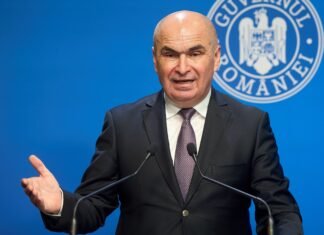The candidate from the National Liberal Party (PNL) for the position of Mayor of the Capital has strongly rebutted accusations made by Cătălin Drulă and Vlad Voiculescu, who allege that PNL is manipulating opinion polls. In response to these claims, Ciucu clarified that the controversial Inscop survey, which has come under fire from the USR party, is not commissioned by his party. He emphasized that the USR possesses its own sociological research, which, notably, has not been made available to the public.
Ciucu elaborated on PNL’s commitment to collaboration with only reputable polling institutes to ensure that their results are not subject to manipulation. He pointed out that accuracy and integrity are critical in today’s political landscape, where public confidence hinges significantly on the validity of electoral data. This proactive approach aims to establish transparency and trust in their operational methodologies.
Additionally, Ilie Bolojan, the leader of PNL, contributed to this discussion by addressing the party’s financial obligations to polling agencies. He stated that PNL has settled a portion of its debts but has made a conscious decision to penalize companies that fail to deliver reliable results. This stance underscores a commitment to accountability both within the party and the industry at large, indicating that PNL is serious about maintaining the quality of data that informs their political strategies.
A recent Inscop poll shows that Ciucu currently leads with 27.1%, surpassing his closest competitor, Daniel Băluță, who has 24%. Despite these figures suggesting a favorable position for PNL, the criticism from USR continues unabated. Voiculescu has been vocal in his dissent, accusing Inscop of producing results that disproportionately benefit PNL, suggesting a broader pattern of bias in the polling process. Drulă has echoed these sentiments and has called for a public debate to challenge the methods employed by Ciucu and the PNL, advocating for greater transparency in polling methodologies.
This clash of narratives is reflective of the heightened political tension leading up to the elections. The accusations of manipulation are not new in the political arena, especially in a climate where public perception can heavily influence electoral outcomes. The loyalty of polling companies, the integrity of data collection methods, and the transparency of their findings are crucial topics that political parties must navigate carefully.
As the election cycle intensifies, it remains to be seen how these discussions and accusations will affect public opinion and voter turnout. Both PNL and USR are keenly aware that their credibility hinges not only on their proposed policies but also on the trustworthiness of the data they present. The call for open discussions, like the one proposed by Drulă, could prove essential in addressing these issues and fostering a more informed electorate.
Ultimately, as the election approaches, the responsibility falls on all parties to demonstrate their commitment to transparent practices. The outcome of this political battle will likely hinge on not only the credibility of polling data but also the ability of candidates to engage the electorate meaningfully and authentically.






